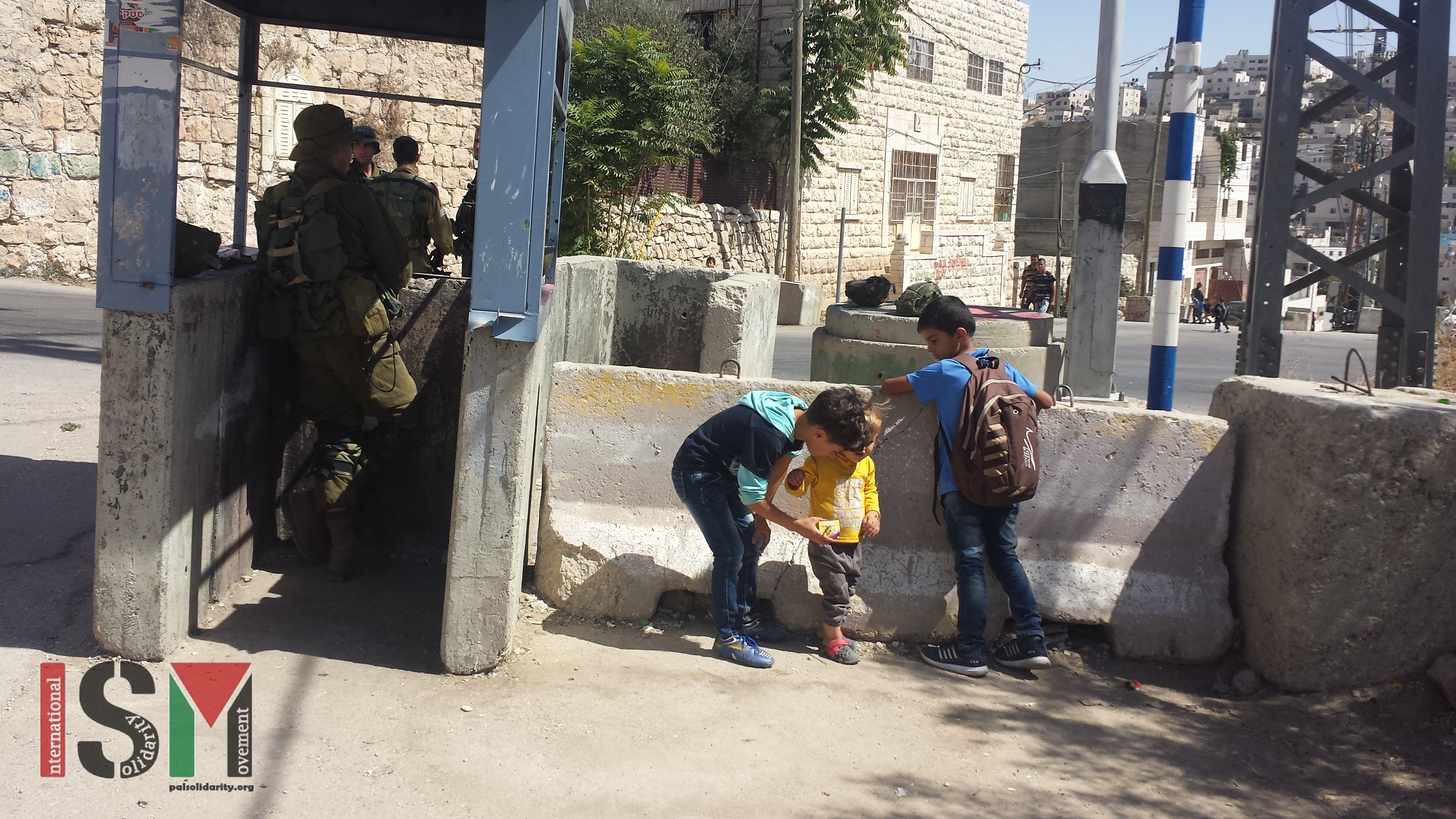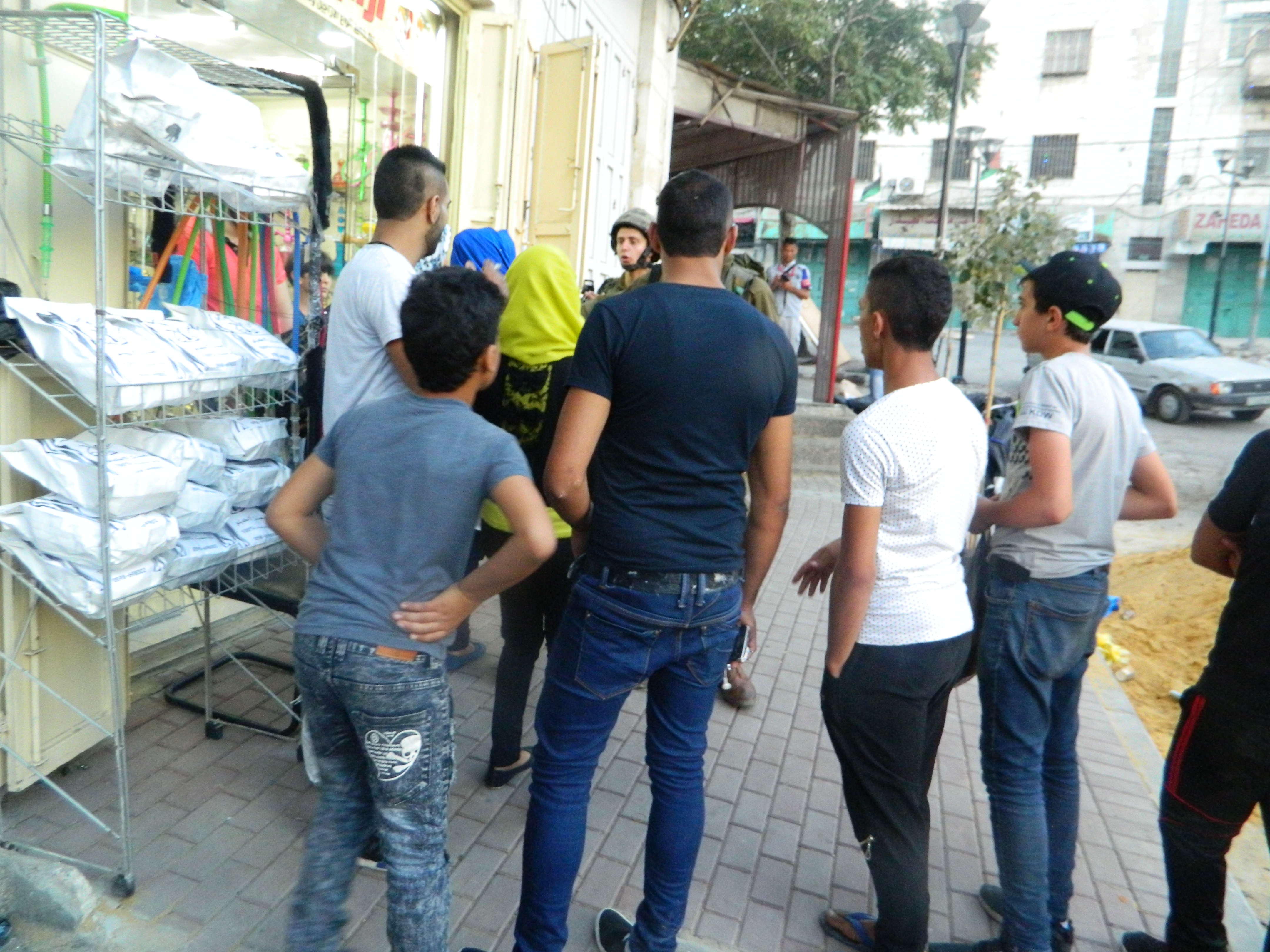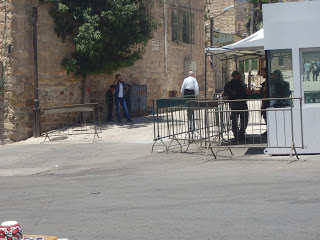Category: Photo Story
-
Photo story: Jewish holidays bring harassment to occupied Hebron
6th October 2016 | International Solidarity Movement, al-Khalil team | Hebron, occupied Palestine The 3rd and 4th of October marked the celebrations of the Yewish New Year. In the occupied West Bank, Jewish holidays, celebrated by the settlers from the illegal settlements. This usually translates to an increase in harassment, restrictions and the presence of…
-
Settlers tour H1, Palestinian movement restricted in Bab E Zawiyeh
14th August 2016 | International Solidarity Movement, al-Khalil team | Hebron, occupied Palestine Surrounded by many Israeli Army and Border Police personnel, a group of several dozen Israeli settlers two days ago went on a tour of Bab E Zawiyeh, an area in Hebron. Prior to the tour, the Israeli military made a show of force, leaving…
-
Photo Story: Friday Prayer at Ibrahimi Mosque- Running the Gauntlet
22nd July 2016 | International Solidarity Movement, al-Khalil team | al-Khalil, occupied Palestine Every Friday, many Palestinian Muslims come to Ibrahimi Mosque for prayers. To get to their place of worship, and home afterwards, they must run a gauntlet of Israeli military checkpoints. The Israeli Border Police invest their time and effort into making this…



